By Walter Sabo
Consultant, Sabo Media Partners
A.K.A. Walter M. Sterling
Radio Host, “Sterling On Sunday”
Talk Media Network
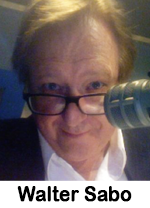 To be an expert in marketing requires expertise in how memory works. Early in my consultant practice, I studied and read every book I could find on the processes of memory. The best book is Effective Frequency: The Relationship Between Frequency and Advertising Effectiveness. Put simply, how many times does a consumer have to hear a message before it has impact? The book, a collection of studies, is the foundation for every qualitative study in the field today.
To be an expert in marketing requires expertise in how memory works. Early in my consultant practice, I studied and read every book I could find on the processes of memory. The best book is Effective Frequency: The Relationship Between Frequency and Advertising Effectiveness. Put simply, how many times does a consumer have to hear a message before it has impact? The book, a collection of studies, is the foundation for every qualitative study in the field today.
Knowing the foundation studies of frequency’s impact facilitates sales, promo scheduling, topic rotation and external station marketing. No marketing budget? Mistake. The most efficient investment in a radio station’s growth is external advertising. Heightened awareness of a station increases cume, key for direct response advertisers, and makes sales calls shorter because the station is familiar to buyers, improves morale, and minimizes competition.
Key take aways from this book of secrets:
The Law of Six: For a message to have impact, it must be heard by the target six times during the length of the campaign.
The Law of Seven: Why are there seven (7) digits in phone numbers? Over a hundred years ago the phone company had to determine how many digits we could handle. They researched how many items we could remember in any product category. How many brand name soaps, tires, shampoos, deodorants. etc. Try it. Write down all the shampoo brands or tire brands you can think of. I’ve performed this magic act with large audiences around the country.
Almost no one can write down more than seven shampoo, deodorant, cereal, or tire brands. The exception is if the question asks you to write down brands of an industry in which you work. Memory activity applies to the use of presets on car radios. Analog car radios rarely fill all five or six pre-set buttons. In your digital car, even though you’re in radio, I bet the most you’ve programmed is four.
Flight or Dose? A $5,000,000 national campaign was tested for flight effectiveness. What works best? Two weeks on, two weeks off or continuous spots. Same number of spots, same budget but continuous or flighted? Two surprising answers: The flighted campaign resulted in more sales. But the continuous run actually hurt sales and after an initial positive impact, sales declined to pre-campaign levels.
Youth Matters: The younger the customer, the more often they must be exposed to the message. A young person has more distractions than an older person.
People Forget: This is the key takeaway: If a product is not advertised for nine months, customers have no memory of the message. None. They might remember that the product exists, but they have no recall of what the product does for them or why they should buy it… or listen to it. A tragic, industry-wide mistake has been made to cease advertising radio stations. Obviously not advertising is hypocritical for a medium that survives on ad dollars. The no-marketing argument is that with the PPM there is no need to remind listeners of a station’s name because the listener no longer has to write it down in a diary. How much has your city changed in nine months? How many new streams, websites, podcasts have distracted your listener from your station? External marketing of a station protects the investment made in its operation.
Walter Sabo has been a C Suite action partner for companies such as SiriusXM, Hearst, Press Broadcasting, Gannett, RKO General and many other leading media outlets. His company HITVIEWS, in 2007, was the first to identify and monetize video influencers. HITVIEWS clients included Pepsi, FOX TV, Timberland, Microsoft, and CBS Television. He can be reached at walter@sabomedia.com and www.waltersterlingshow.com. “Sterling On Sunday,” from Talk Media Network airs 10:00 pm-1:00 ET, now in its 10th year of success.
Share this with your network
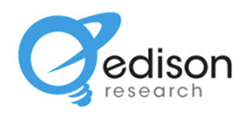 those living in suburban or urban areas. Rural listeners spend 43% of their daily audio listening time with AM/FM radio and radio streams, compared with urban listeners who spend 34% of their time with AM/FM radio and radio streams. Meanwhile, Urban listeners spend over twice as much of their daily audio time with podcasts as rural listeners. Urban listeners spend 13% of their daily audio time with podcasts compared with rural listeners who spend 6% of their daily time with podcasts.” Interestingly, if you combine the AM/FM listening and podcast listening numbers for Urban, Suburban and Rural listeners, these numbers are essentially the same – between 47% and 49%. Edison notes, “It appears that the ‘time budget’ for radio and podcasting combined is consistent across locations; it is just the apportionment of that time that varies.”
those living in suburban or urban areas. Rural listeners spend 43% of their daily audio listening time with AM/FM radio and radio streams, compared with urban listeners who spend 34% of their time with AM/FM radio and radio streams. Meanwhile, Urban listeners spend over twice as much of their daily audio time with podcasts as rural listeners. Urban listeners spend 13% of their daily audio time with podcasts compared with rural listeners who spend 6% of their daily time with podcasts.” Interestingly, if you combine the AM/FM listening and podcast listening numbers for Urban, Suburban and Rural listeners, these numbers are essentially the same – between 47% and 49%. Edison notes, “It appears that the ‘time budget’ for radio and podcasting combined is consistent across locations; it is just the apportionment of that time that varies.”


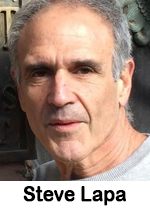 It may seem impossible, but you need to stay in your lane.
It may seem impossible, but you need to stay in your lane.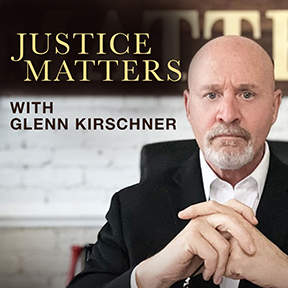 News/MSNBC legal analyst. In this podcast, he addresses matters related to politics, the law, government ethics, and the criminal judicial system. The podcast is published each Tuesday, Thursday, and Saturday. Crossover Media Group managing member Sue Freund says, “Glenn has earned an admirable reputation as one of America’s most respected legal and political analysts. He’s an ideal fit with our wide and diverse lineup of talk hosts appealing to listeners across demographics.” Crossover says this new podcast “joins a wide array of shows produced and/or represented by Crossover Media Group spanning the spectrum of political talk, analysis and opinion. The Crossover Media Group lineup also includes dozens of other popular podcasts and personalities in the genres of news, sports, true-crime, history, business, science, lifestyle, entertainment and pop culture – a content portfolio which recently expanded with the addition of ‘The Official Yellowstone Podcast.’”
News/MSNBC legal analyst. In this podcast, he addresses matters related to politics, the law, government ethics, and the criminal judicial system. The podcast is published each Tuesday, Thursday, and Saturday. Crossover Media Group managing member Sue Freund says, “Glenn has earned an admirable reputation as one of America’s most respected legal and political analysts. He’s an ideal fit with our wide and diverse lineup of talk hosts appealing to listeners across demographics.” Crossover says this new podcast “joins a wide array of shows produced and/or represented by Crossover Media Group spanning the spectrum of political talk, analysis and opinion. The Crossover Media Group lineup also includes dozens of other popular podcasts and personalities in the genres of news, sports, true-crime, history, business, science, lifestyle, entertainment and pop culture – a content portfolio which recently expanded with the addition of ‘The Official Yellowstone Podcast.’” Barry Armstrong. The program is hosted by Chuck Zodda and Mike Armstrong and is heard on 14 affiliate stations. Wolfe began his tenure with Money Matters in August of 2014 after many years serving as the VP of programming and operations for sports talk WEEI and news/talk WRKO in Boston. Money Matters says, “Since joining Money Matters, Wolfe has led the growth of the show’s radio network as well as creating new content and sponsorship opportunities for current and prospective clients, negotiating all network contracts, and expanding the show’s digital footprint through a daily live video stream which can be seen on Facebook, Twitch and the show’s website.” In his role as COO, Wolfe will oversee all aspects of the company’s policies and procedures, including finance, network operations, sales, and marketing.
Barry Armstrong. The program is hosted by Chuck Zodda and Mike Armstrong and is heard on 14 affiliate stations. Wolfe began his tenure with Money Matters in August of 2014 after many years serving as the VP of programming and operations for sports talk WEEI and news/talk WRKO in Boston. Money Matters says, “Since joining Money Matters, Wolfe has led the growth of the show’s radio network as well as creating new content and sponsorship opportunities for current and prospective clients, negotiating all network contracts, and expanding the show’s digital footprint through a daily live video stream which can be seen on Facebook, Twitch and the show’s website.” In his role as COO, Wolfe will oversee all aspects of the company’s policies and procedures, including finance, network operations, sales, and marketing.
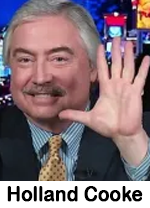 Why? Done right, it makes you special. Because new-tech audio competitors don’t do local news, and with most broadcast radio hours now robotic.
Why? Done right, it makes you special. Because new-tech audio competitors don’t do local news, and with most broadcast radio hours now robotic.
 Does anyone care anymore?
Does anyone care anymore?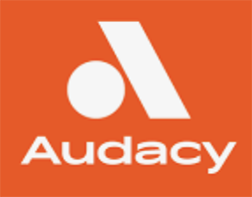 determined that granting a limited waiver deferring its foreign ownership review to facilitate a licensee’s prompt emergence from bankruptcy is consistent with the Communications Act.” Further, Audacy says, “According to the MRC, Audacy is attempting to employ an ‘entirely new’ and ‘vague and undefined’ special warrant process’ to delay the Commission review of Audacy’s proposed foreign ownership until ‘sometime down the road’ when the company ‘may choose’ to file a petition for declaratory ruling seeking such review. This specious claim not only mischaracterizes the company’s waiver request detailed in the Application, but completely ignores longstanding precedent establishing the Commission-approved special warrant process used in a number of prior transactions to allow licensees to emerge from bankruptcy promptly, while affording the Commission sufficient opportunity to review foreign ownership issues post-emergence.” Separately, FCC Chairwoman Jessica Rosenworcel responded to Congressman Nicolas Langworthy (R-NY) and Congressman Chip Roy (R-TX), who both wrote to her implying that the Commission is not going through “its normal, statutorily required process” and voiced concern over Soros Fund Management’s acquisition of Audacy debt. Langworthy wrote that Audacy being “owned by a deeply partisan individual [George Soros], could have a fundamental impact on the nature of local radio and potentially silence political viewpoints.” Rosenworcel’s response indicates she believes the Commission is handling the matter appropriately, saying, “The Bureau staff will review the record and decide if the transfer is in the public interest pursuant to Section 310(d) of the Communications Act.”
determined that granting a limited waiver deferring its foreign ownership review to facilitate a licensee’s prompt emergence from bankruptcy is consistent with the Communications Act.” Further, Audacy says, “According to the MRC, Audacy is attempting to employ an ‘entirely new’ and ‘vague and undefined’ special warrant process’ to delay the Commission review of Audacy’s proposed foreign ownership until ‘sometime down the road’ when the company ‘may choose’ to file a petition for declaratory ruling seeking such review. This specious claim not only mischaracterizes the company’s waiver request detailed in the Application, but completely ignores longstanding precedent establishing the Commission-approved special warrant process used in a number of prior transactions to allow licensees to emerge from bankruptcy promptly, while affording the Commission sufficient opportunity to review foreign ownership issues post-emergence.” Separately, FCC Chairwoman Jessica Rosenworcel responded to Congressman Nicolas Langworthy (R-NY) and Congressman Chip Roy (R-TX), who both wrote to her implying that the Commission is not going through “its normal, statutorily required process” and voiced concern over Soros Fund Management’s acquisition of Audacy debt. Langworthy wrote that Audacy being “owned by a deeply partisan individual [George Soros], could have a fundamental impact on the nature of local radio and potentially silence political viewpoints.” Rosenworcel’s response indicates she believes the Commission is handling the matter appropriately, saying, “The Bureau staff will review the record and decide if the transfer is in the public interest pursuant to Section 310(d) of the Communications Act.” To be an expert in marketing requires expertise in how memory works. Early in my consultant practice, I studied and read every book I could find on the processes of memory. The best book is Effective Frequency: The Relationship Between Frequency and Advertising Effectiveness. Put simply, how many times does a consumer have to hear a message before it has impact? The book, a collection of studies, is the foundation for every qualitative study in the field today.
To be an expert in marketing requires expertise in how memory works. Early in my consultant practice, I studied and read every book I could find on the processes of memory. The best book is Effective Frequency: The Relationship Between Frequency and Advertising Effectiveness. Put simply, how many times does a consumer have to hear a message before it has impact? The book, a collection of studies, is the foundation for every qualitative study in the field today.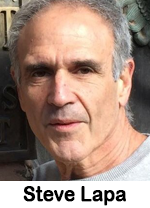 The media headlines are dizzying these days, yet they all share one common thread. See if you can solve this puzzle.
The media headlines are dizzying these days, yet they all share one common thread. See if you can solve this puzzle.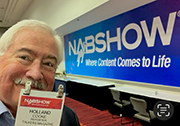 Thank me later for these Blackjack tips, based on many convention years’ experience, sometimes painful:
Thank me later for these Blackjack tips, based on many convention years’ experience, sometimes painful:
 media budget, adding AM/FM radio to a digital/TV plan sharply builds reach. Via Nielsen Commspoint, the media allocation planning tool, a wide range of monthly digital/TV media plans were examined. Very small, light, medium, and heavy campaigns were examined. The lightest digital/TV campaign reached 10% of the market. The heaviest reached 60%. Then a 20% allocation of AM/FM radio was introduced. The results were stunning. Across the seven monthly campaigns, from the lightest to the heaviest, the addition of AM/FM radio generated significant lifts in reach. Shifting 20% of the lightest TV/digital campaign to AM/FM radio caused reach to double. Introducing the 20% allocation of AM/FM radio to medium-sized campaigns causes reach to soar by 36% to 55%. Even the heaviest TV and digital campaign saw reach grow 20% with the addition of AM/FM radio to the plan.”
media budget, adding AM/FM radio to a digital/TV plan sharply builds reach. Via Nielsen Commspoint, the media allocation planning tool, a wide range of monthly digital/TV media plans were examined. Very small, light, medium, and heavy campaigns were examined. The lightest digital/TV campaign reached 10% of the market. The heaviest reached 60%. Then a 20% allocation of AM/FM radio was introduced. The results were stunning. Across the seven monthly campaigns, from the lightest to the heaviest, the addition of AM/FM radio generated significant lifts in reach. Shifting 20% of the lightest TV/digital campaign to AM/FM radio caused reach to double. Introducing the 20% allocation of AM/FM radio to medium-sized campaigns causes reach to soar by 36% to 55%. Even the heaviest TV and digital campaign saw reach grow 20% with the addition of AM/FM radio to the plan.” 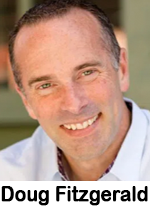 show produced at KLIN is titled after is best-selling book, ONESHOT. ONELIFE. – The Ultimate Success Formula To Help You Win At Anything In Life (Morgan James Publishing, 2018). NRG general manager Ami Graham says, “Doug has been a friend of KLIN for years. During your drive home, Doug will tackle the issues that matter to our community through commentary, guests, and listener engagement. We are thrilled to have him on our airwaves every weekday.” Fitzgerald says, “I am excited and honored for the opportunity to serve Lincoln and Nebraska on such an iconic station as KLIN and during a time slot where great hosts have broadcast over the years. My vision is to address the cultural issues that impact our city and state through the lens of the values that make Nebraska ‘The Good Life.’ To me, ‘Drive Time Nebraska’ will be like taking a road trip with your family or good friends… having great conversations and fun, along with getting on each other’s nerves now and then. In the end, you still make it home together.”
show produced at KLIN is titled after is best-selling book, ONESHOT. ONELIFE. – The Ultimate Success Formula To Help You Win At Anything In Life (Morgan James Publishing, 2018). NRG general manager Ami Graham says, “Doug has been a friend of KLIN for years. During your drive home, Doug will tackle the issues that matter to our community through commentary, guests, and listener engagement. We are thrilled to have him on our airwaves every weekday.” Fitzgerald says, “I am excited and honored for the opportunity to serve Lincoln and Nebraska on such an iconic station as KLIN and during a time slot where great hosts have broadcast over the years. My vision is to address the cultural issues that impact our city and state through the lens of the values that make Nebraska ‘The Good Life.’ To me, ‘Drive Time Nebraska’ will be like taking a road trip with your family or good friends… having great conversations and fun, along with getting on each other’s nerves now and then. In the end, you still make it home together.”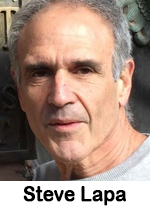 Is that host read you are pitching “baked-in?”
Is that host read you are pitching “baked-in?” Have we passed the disappointment of 2023?
Have we passed the disappointment of 2023? Jessica Tighe, who joins the station from “CBS58” airing from 11:00 am to 1:00 pm; “Spanning the State,” hosted by As Goes Wisconsin founder Kristin Brey, airing from 1:00 pm to 3:00 pm; and “Wisconsin’s Afternoon News” host John Mercure is joined by new co-host Julia Fello, formerly a lead reporter at WTMJ-TV. Good Karma Milwaukee market manager Greg Scalzo comments, “As a Wisconsin-based media company, we are excited to further our commitment to providing best-in-class news content that unites the state and strengthens the communities we call home. With this new lineup, one thing we wanted to emphasize is a shift in who we hear on the station and how our content can be consumed. Our fans will hear from hosts with new, diverse perspectives and experiences with shows and stories distributed across all mediums to reach fans where they are. We remain dedicated to continuing 620 WTMJ’s storied legacy, delivering purposeful news and telling the stories that matter to you throughout Wisconsin. Our new shows and voices will give us more of an opportunity to relate and be relevant to anyone who tunes in, while staying committed to the mission of being Wisconsin’s News Radio.”
Jessica Tighe, who joins the station from “CBS58” airing from 11:00 am to 1:00 pm; “Spanning the State,” hosted by As Goes Wisconsin founder Kristin Brey, airing from 1:00 pm to 3:00 pm; and “Wisconsin’s Afternoon News” host John Mercure is joined by new co-host Julia Fello, formerly a lead reporter at WTMJ-TV. Good Karma Milwaukee market manager Greg Scalzo comments, “As a Wisconsin-based media company, we are excited to further our commitment to providing best-in-class news content that unites the state and strengthens the communities we call home. With this new lineup, one thing we wanted to emphasize is a shift in who we hear on the station and how our content can be consumed. Our fans will hear from hosts with new, diverse perspectives and experiences with shows and stories distributed across all mediums to reach fans where they are. We remain dedicated to continuing 620 WTMJ’s storied legacy, delivering purposeful news and telling the stories that matter to you throughout Wisconsin. Our new shows and voices will give us more of an opportunity to relate and be relevant to anyone who tunes in, while staying committed to the mission of being Wisconsin’s News Radio.”